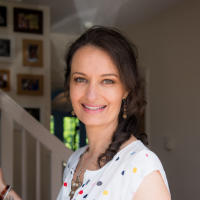*Elephant is not your doctor or hospital. Our lawyers would say “this web site is not designed to, and should not be construed to provide medical advice, professional diagnosis, opinion or treatment to you or any other individual, and is not intended as a substitute for medical or professional care and treatment. Always consult a health professional before trying out new home therapies or changing your diet.” But we can’t afford lawyers, and you knew all that. ~ Ed.
Is it possible to be too healthy or eat too clean?
A few years back, I didn’t think so. In fact, it was my life’s mission to be as healthy as possible, to look after my own and my family’s wellness. After all, I thought, food is medicine.
Nothing wrong with that, right?
My orthorexia started with good intentions. I was introducing more organic whole foods, cutting out processed and packaged foods, scrutinizing labels (no sugar welcome in my house), and trying to cook from scratch—always.
But my near religious devotion to healthy eating soon veered toward a legalistic, judgmental mindset and an obsessive eating disorder.
I wasn’t trying to lose weight (or at least that wasn’t my focus); I wanted to be healthy. And according to the influencers I followed, so many foods weren’t healthy. They were toxic and potential allergens. I avoided sugar, gluten, most grains, dairy, soy, and tried to be vegan.
That didn’t leave behind much food that I could eat.
Whilst spiralizing veggies isn’t necessarily harmful, orthorexia demands a level of perfectionism that just isn’t sustainable. And the guilt you feel when you can’t maintain your perfect diet is crippling.
I realize now that it’s problematic when the pursuit of clean eating interferes with your life. Yet, in our society, orthorexia behaviors are normalized, even encouraged. It’s probably no wonder then that the incidence of orthorexia behaviors is fairly common, displayed by 6.9% of the general population and alarmingly 51.8% of gym-goers.
When I was eating “clean,” I was praised for being so dedicated and committed to healthy eating. This kind of external validation was alluring and kept me going.
I marinated in my perfect eating efforts for about three years. Then, thankfully, discovering food freedom freed me from the rigid food rules I’d created for myself. As I reflect on my experience, it’s clear that healthy eating does have a dark side.
Here are five things I’ve learnt since my recovery.
1. There’s a fine line between healthy and disordered eating.
My experience with orthorexia highlights just how easily an innocent pursuit of health can tip over into disordered eating. Before I knew it, I was monitoring every bite of food, avoiding restaurant trips, and baking sugar-free, dairy-free, gluten-free birthday cakes for the kids.
It’s unsustainable and damaging, not least how I was role modelling a negative relationship with food to my kids.
2. All foods really do fit.
I’ve learned that a healthy approach to eating is one where all foods fit (unless, of course, you have a medical reason to restrict certain foods). I had such a long list of “not allowed” foods that every eating experience was stressful.
I believe that all foods can be enjoyed as part of a balanced and healthy diet (and yes, that even includes cake and pizza). I still focus on eating nutrient-dense food, but I’ve also come to understand that some food nourishes the body and other foods nourish the soul.
3. It’s worse for your health to stress about the sugar in a cookie than to eat the damn cookie.
I spent hundreds of hours calculating grams of sugar in everything. I was terrified of sugar. I was fully convinced that one sweet would turn me into a sugar junkie and that my kids’ lives depended on never consuming sweets.
Turns out all that stress was way worse for me than the damn sugar itself. I also learnt that what most people call their sugar addiction is actually a rebound effect from trying to restrict sugar. I certainly found that my kids crave much less sugar now that they are actually allowed to eat sweets.
4. Health is about way more than just the food we eat.
I used to believe that health was all about what we eat and how much we exercise. I was so wrong. Yes, food and exercise play a part, but health is also about social, emotional, and mental health.
We need to understand health in a broader context, such as social connections, well-being, and quality of sleep. We must also acknowledge that health is impacted by education, ability to access decent food, and good health care.
5. Beware the pseudoscience.
There are so many ideas presented within the wellness arena that skirt the edge of real science. There are ideas and explanations presented as scientific truth but based on a flawed understanding of research or data.
We have to remember that animal studies, observational human studies, and correlational studies don’t indicate causation. Just because two things are related doesn’t mean that one impacts the other.
To illustrate: there is an association between yellow teeth and lung cancer. But this is a correlation, so we can’t say that yellow teeth cause lung cancer. Of course, we know in this scenario that there is a third factor to blame that is smoking. Smoking causes both yellow teeth and lung cancer.
This is the nuance that gets lost. We see alarmist headlines that aren’t true, but scary clickbait titles sell, and we believe them too.
These reflections aren’t to say that it’s not possible to pursue health. We can! As a psychologist and a health coach, I still want people to live long healthy lives by engaging in as many health promoting behaviors as possible.
So how can we eat for health but without obsession? I recommend that my clients aim for variety and flexibility.
It’s important to have variety on your plate—different macros, fruits, and vegetables each week. My tip is to add to your plate rather than subtract. It’s better to focus on adding new fruits, veggies, and fiber each week, rather than taking away or restricting foods.
I also recommend that clients are flexible in their approach. If you’re aiming to eat in a healthful way, yet when you go to Aunty Jane’s house she doesn’t serve any vegetables, that’s okay. If you have a weekend of eating out—restaurant meals and parties—that’s okay too. Be flexible.
Nutrition isn’t all or nothing. It is possible to enjoy ice cream, chocolate, and sweets yet still pursue health.
~
Please consider Boosting our authors’ articles in their first week to help them win Elephant’s Ecosystem so they can get paid and write more.


 Share on bsky
Share on bsky





Read 16 comments and reply